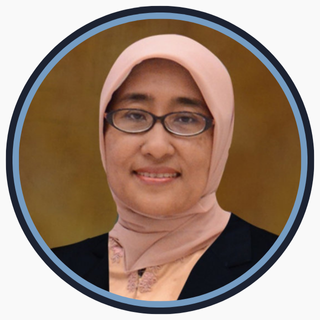FILARIASIS DISTRIBUTION AND COVERAGE OF MASS DRUG ADMINISTRATION
Downloads
Background: Filariasis is still a serious health problem in Indonesia. One of the endemic areas is Demak, which implemented a mass drug administration (MDA) elimination programme in 2016. However, filariasis was still found in 2017–18. Purpose: This research aims to describe the distribution of filariasis and coverage of filariasis MDA in Demak. Method: A case series based on people, time, and place was used as the design of this research. The research was conducted in May–June 2019 using secondary data obtained from the Health Office of Demak based on the results of the MDA programme in the community. The target population of this research comprised residents of Demak from 2016 to 2018. The variables researched were filariasis cases based on gender, age, region, year of MDA implementation, and MDA coverage, which were described based on univariate and spatial analysis. Result: There were 23 filariasis cases in Demak during 2016–18, most of which occurred in the age group 46–60 (39.10%) and in women (60.90%); they occurred in almost all subdistricts of Demak. The MDA coverage of filariasis has reached the target (>85%), but there is one particular area that has decreased MDA coverage where some cases are found each year. Conclusion: Provision of MDA was carried out in 2016–18 but cases of filariasis are still being reported; also, one of these areas has been decreasing its MDA coverage every year.
Adams, A., Vuckovic, M., Birch, E., Brant, T., Bialek, S., Yoon, D., ... Baker, M. (2018). Eliminating neglected tropical diseases in urban areas: a review of challenges, strategies and research directions for successful mass drug administration. Tropical Medicine and Infectious Disease, 3(122), 1–12. https://doi.org/10.3390/tropicalmed3040122
Alamsyah, A., & Marlina, T. (2016). Factors that related to coverage of ingestion of mass prevention drugs of filariasis. Jurnal Endurance, 1(1), 17–21. https://doi.org/10.22216/jen.v1i1.586
Ambarita, L. P., Taviv, Y., Sitorus, H., Pahlepi, R. I., & Kasnodihardjo. (2015). Community behavior related to elephantiasis and mass treatment programs in Pemayung Sub-District, Batanghari District, Jambi. Media Penelitian dan Pengembangan Kesehatan, 24(4), 191–198. https://doi.org/10.22435/mpk.v24i4.3673.191-198
Anorital, Dewi, R. M., & Palupi, K. (2016). The study of an effort to administer filariasis mass preventive medicine to control helminthiasis infection. Jurnal Biotek Medisiana Indonesia, 5(2), 95–103. https://doi.org/10.22435/jbmi.v5i2.7699.95-103
Arini, A., Saraswati, L. D., Ginandjar, P., & Martini, M. (2018). The prevalence of filariasis and the description of mass treatment in the working area of Jembatan Mas Public Health Center, Batang Hari Regency. Jurnal Kesehatan Masyarakat (e-Journal), 6(1), 178–190.
Chesnais, C. B., Awaca-Uvon, N. P., Vlaminck, J., Tambwe, J. P., Weil, G. J., Pion, S. D., & Boussinesq, M. (2019). Risk factors for lymphatic filariasis in two villages of the Democratic Republic of the Congo. Parasites & Vectors, 12(162), 1–13. https://doi.org/10.1186/s13071-019-3428-5
Fauzi, R., & Nishaa, K. (2018). Great pharmacists therapy to obey healthy patients. Indonesia: Stiletto Indie Book.
Gyapong, J. O., Owusu, I. O., da-Costa Vroom, F. B., Mensah, E. O., & Gyapong, M. (2018). Elimination of lymphatic filariasis: current perspectives on mass drug administration. Research and Reports in Tropical Medicine, 9, 25–33. https://doi.org/10.2147/rrtm.s125204
Habibah, Z., & Sungkar, S. (2015). coverage of filariasis mass prevention drug administration in Southwest Sumba Regency in 2012-2013. EJournal Kedokteran Indonesia, 3(3), 199–203. https://doi.org/10.23886/ejki.3.5648.
Irfan, I., Kambuno, N. T., & Israfil, I. (2018). Factors Affecting the Incidence of Filariasis in Welamosa Village Ende District East Nusa Tenggara. Global Medical & Health Communication, 6(2), 130–137. https://doi.org/10.29313/GMHC.V6I2.3208
Kar, S. K., Dwibedi, B., Kerketa, A. S., Maharana, A., Panda, S. S., Mohanty, P. C., ... Ramachandran, C. P. (2015). A randomized controlled trial of increased dose and frequency of albendazole with standard dose DEC for treatment of wuchereria bancrofti microfilaremics in Odisha, India. PLoS Neglected Tropical Diseases, 9(3), 1–12. https://doi.org/10.1371/journal.pntd.0003583
Marathe, N., & Chalisgaonkar, C. (2015). Mass drug administration coverage evaluation for elimination of lymphatic filariasis in Chhatarpur district of Madhya Pradesh. International Journal of Medical Science and Public Health, 4(7), 927. https://doi.org/10.5455/ijmsph.2015.08032015190
Meliyanie, G., & Andiarsa, D. (2017). Lymphatic filariasis elimination program in Indonesia. Journal of Health Epidemiology and Communicable Diseases, 3(2), 63–70. https://doi.org/10.22435/jhecds.v3i2.1790
Ministry of Health RI. (2014). Regulation of the Minister of Health RI number 94 of 2014 concerning prevention of filariasis. Jakarta: Ministry of Health RI.
Ministry of Health RI. (2015). Towards the elimination of filariasis 2020. Jakarta: Ministry of Health RI.
Ministry of Health RI. (2018). Towards the eradication of filariasis Indonesia. Jakarta: Ministry of Health RI.
Nurjazuli, Dangiran, H. L., & Bari'ah, A. A. (2018). Spatial analysis of the incidence of filariasis in Demak Regency, Central Java. Jurnal Kesehatan Lingkungan Indonesia, 17(1), 46–51. https://doi.org/10.1023/A:1023918517378
Ojha, C. R., Joshi, B., Khagendra Prakash, K. C., Dumre, S. P., Yogi, K. K., Bhatta, B., ... Marasini, B. R. (2017). Impact of mass drug administration for elimination of lymphatic filariasis in Nepal. PLoS Neglected Tropical Diseases, 11(7), 1–12. https://doi.org/10.1371/journal.pntd.0005788
Oktarina, R., & Ritawati. (2018). Study of post-administration of mass prevention drug (POPM) filariasis stage III of Muara Enim Regency, South Sumatra Province in 2016. Jurnal Vektor Penyakit, 12(2), 93–102. https://doi.org/https://doi.org/10.22435/vektorp.v12i2.837
Saeed, M., Faisal, S. M., Ahmad, I., Kausar, M. A., Alam, M. J., Khan, S., & Mustafa, H. (2018). Status of lymphatic filariasis with progression of age and gender and eradication strategies: a survey among residents of Hardoi district of Uttar Pradesh, an endemic region of North India. Cellular and Molecular Biology, 64(4), 46–51. https://doi.org/10.14715/cmb/2018.64.4.8
Santoso, Yenni, A., Oktarina, R., & Wurisastuti, T. (2015). Effectiveness of stage II filariasis mass treatment using a combination of DEC and albendazole against the prevalence of Malayia brugia. Buletin Penelitian Sistem Kesehatan, 18(2), 161–168.
Sipayung, M., Wahjuni, C. U., & Devy, S. R. (2014). Environment biological and health care efforts influenced of lymfatic filariasis incidence, Sarmi District. Jurnal Berkala Epidemiologi, 2(2), 263–273.
Tyagi, B. K. (2018). Lymphatic filariasis: epidemiology, treatment and prevention - the Indian perspective. Singapore: Springer Nature Singapore.
Wulandhari, S. A., & Pawenang, E. T. (2017). Spatial analysis of environmental health aspects with the incidence of filariasis in Pekalongan City. Unnes Journal of Public Health, 6(1), 59–67. https://doi.org/10.15294/ujph.v6i1.7250
Yanuarini, C. (2015). Factors related to the incidence of filariasis in the Tirto I Community Health Center, Pekalongan Regency. Fikkes Jurnal Keperawatan, 8(1), 73–86.
Yunarko, R., & Patanduk, Y. (2018). Distribution of timari brugia filariasis and wuchereria bancrofti in Kahale Village, Kodi Balaghar District, Southwest Sumba Regency, East Nusa Tenggara. Balaba: Jurnal Litbang Pengendalian Penyakit Bersumber Binatang Banjarnegara, 12(2), 89–98. https://doi.org/10.22435/blb.v12i2.202
- Every manuscript submitted to must observe the policy and terms set by the Jurnal Berkala Epidemiologi
- Publication rights to manuscript content published by the Jurnal Berkala Epidemiologi is owned by the journal with the consent and approval of the author(s) concerned. (download copyright agreement)
- Complete texts of electronically published manuscripts can be accessed free of charge if used for educational and research purposes according to copyright regulations.

JBE by Universitas Airlangga is licensed under a Creative Commons Attribution-ShareAlike 4.0 International License.























